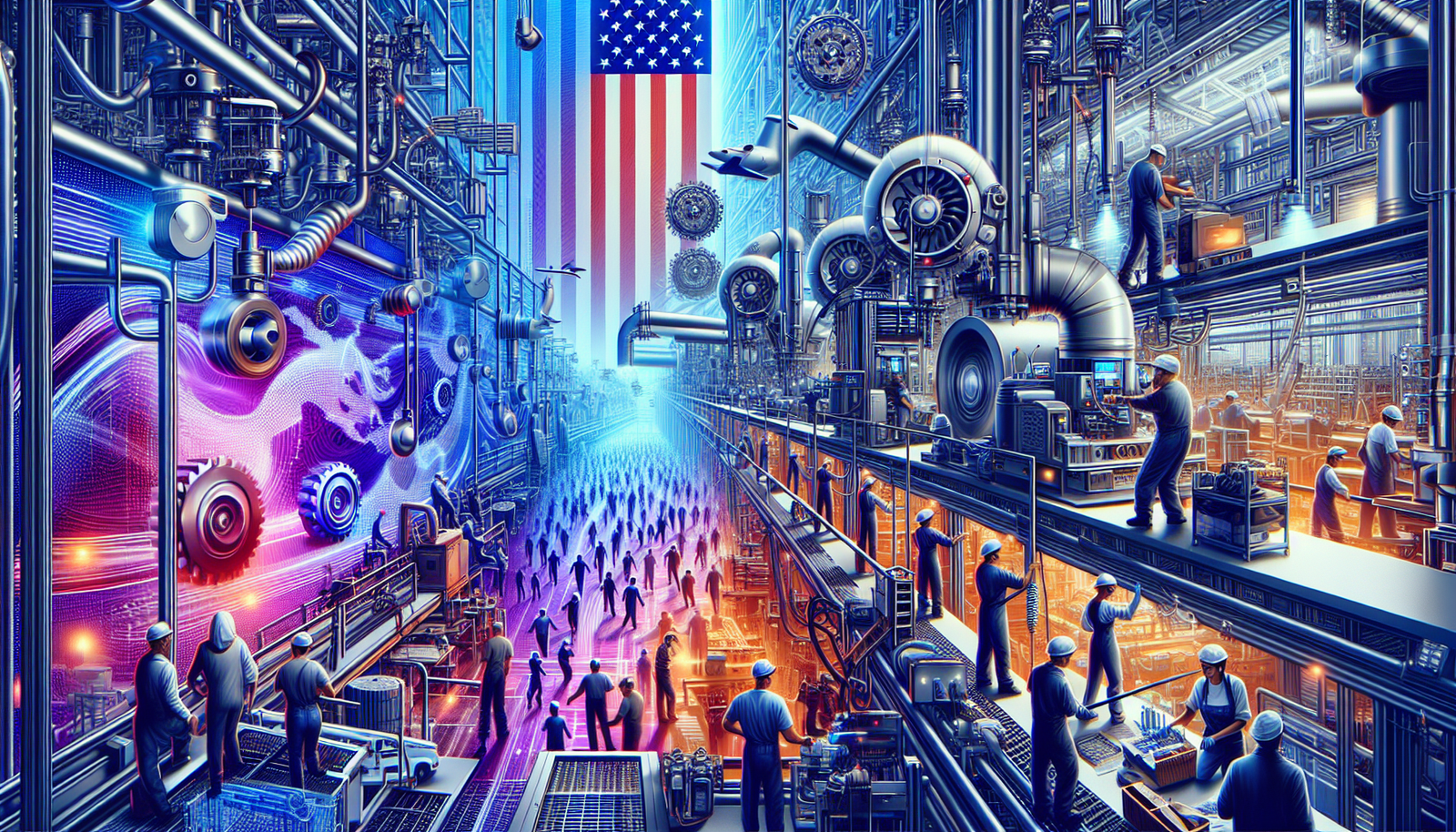The trade war triggered by Trump turns out to be a spectacle with unforeseen repercussions. *Images of American factories* evoke a complex debate about the national industry’s ability to renew itself. *Memes created by artificial intelligence* reveal a satirical view of American workers, highlighting their daily struggles. Trade tensions exacerbate disparities, revealing the challenge of making the manufacturing industry thrive within American borders. *The incredulity towards presidential promises* mixes with experts’ skepticism, raising questions about the country’s economic future.
The trade war between China and the United States
The recent proliferation of AI-generated memes reflects the wandering anti-American sentiment among Chinese internet users. These videos reveal a willingness to mock the industrial power of the United States, often depicting tired American workers, dressed ordinarily, in factories where they assemble products. A sign reading “Make America great again” often serves as a backdrop to these scenes. The caricatures are a powerful symbol, reinforcing the stereotypes that persist about the productivity of American workers.
Growing tariffs and diplomatic tensions
The recent tariff measures between the two nations exacerbate trade tensions. Washington has imposed a tax of 145% on certain Chinese products, while Beijing has retaliated with a 125% increase on imports from the United States. This tariff escalation is just one facet of a larger conflict, where every intervention from the leaders of both countries seems to further aggravate the situation.
American skepticism towards Trump’s promises
Donald Trump’s declared project to bring manufacturing back within American borders raises many doubts among economists. Many share a growing skepticism about the costs of this initiative, deemed unbearable for an already impoverished middle class. Economist Anne-Laure Delatte emphasizes in Alternatives Économiques the difficulty of successfully achieving such a turnaround without painful consequences for American workers.
Reactions on social media
The memes circulating on Douyin, TikTok, and other platforms seem imbued with a biting irony. Content creators mock American statements while presenting images of factories in China where workers appear more efficient. This contrast aims to challenge pro-American narratives by highlighting the perceived flaws of the American industrial model.
Long-term implications
The current economic tensions herald lasting consequences for both countries. As several experts suggest, the intensification of the trade war could lead to an even more pronounced division of global supply chains. Each side may be forced to increase its autonomy, which could further fragment the global economic landscape.
Future perspectives
As global leaders question the implications of this war, technological stakes are also rising. The race for innovation in the fields of semiconductors and artificial intelligence exacerbates tensions, as indicated by the ongoing investigation into Nvidia, potentially suspected of violating antitrust laws in China. These events intensify corporate scrutiny among economic powers, transforming competition into a complex and strategic confrontation.
For an in-depth analysis of the future stakes of this competition, consult this article.
Conclusion of critical viewpoints
The current trade war, combined with distorted perceptions of workers on both sides, fosters an atmosphere of distrust. The AI-created memes and other forms of online expression reflect not only a disillusioned humor but also a profound social questioning about the future of both nations. Leaders are trying to grasp these realities while navigating a sea of geopolitical uncertainties.
For further clarifications on the subject, explore this article on the technological war between the United States and China.
Frequently asked questions
What are the main impacts of the trade war between the United States and China on the American industry?
The trade war has led to an increase in tariffs, which has caused a rise in production costs for many American industries, potentially harming their competitiveness.
How do AI-created memes illustrate the perception of American workers in the context of this trade war?
The memes often portray negative images of American workers, reinforcing the idea that the industry has lost its competitiveness, often through a satirical and mocking approach.
What is the general sentiment among economic experts regarding Trump’s strategy to repatriate manufacturing?
Many experts, like economist Anne-Laure Delatte, express skepticism about the feasibility of this strategy, indicating that the costs would be too high for the American middle class.
How does China react to Trump’s trade policies?
China has implemented retaliatory tariffs, increasing the costs of American imports, and often responded with communication campaigns, including memes, to criticize the United States.
Are memes about the trade war official communication acts or creations by internet users?
It is difficult to determine their exact origin; they may come from either government initiatives or internet users seeking to express a critical opinion on the situation.
Are American workers really less competitive than their Chinese counterparts?
While challenges exist, studies show that competitiveness depends on many factors, including technology and productivity, and that American workers are just as capable as those in other countries.
What measures could be taken to improve the image of American workers in the current context?
Training initiatives, investments in technology, and promotion of American-made products could help enhance their image and competitiveness in the global market.
Why is it crucial to examine the trade war through the lens of memes and popular culture?
Memes often reflect public opinion and can influence perceptions of events. They help to understand how a complex situation like the trade war is perceived by the general public.






